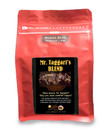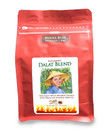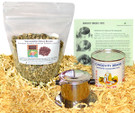- Home
- Coffee by Type
- Robusta
- Fire-Roasted Vietnamese Peaberry Robusta
Fire-Roasted Vietnamese Peaberry Robusta
One of the visitors to our back courtyard Flamingo Lounge shared with us a video of his mother and family hand-roasting Robusta coffee back in Vietnam over a fire pit using a wire mesh basket “rotisserie” setup on side supports that was turned with a hand crank. When the beans were ready, they were poured onto a tarpaulin-type cloth and tossed until cooled with the traditional butter oil, a touch of sugar and cocoa. This is a common rural method of coffee roasting, and the result is bagged and sold locally or brewed at a cafe.
We're fire-roasting our Peaberry Robusta on our grill roaster in the same style, only we're foregoing the hand crank for a motor so we don't have to turn the beans manually until our arms fall off!
Our Highland Peaberry Robusta beans are the biggest and best in the world. They are so large that they sometimes task our electric fluid-bed hot air roaster to its limit because they are so big and dense they are slow to cook. Roasting on an open fire lets us really crank it up and go “low tech as heck” on these beans and really serve up a traditional Vietnamese roast just like you would get on a country tour in Vietnam. This is how we like to roll (and toss)... Get your tin mug ready and experience a real cuppa tradition from halfway around the world!
The natural "harlequin" range of color and temperature goes from Dark Roast to Light. This is the world's finest Robusta in a bold profile like you've never tasted before!
8 ounce bag. Please select whole bean or ground.
Customer Reviews
Latest Blog Post
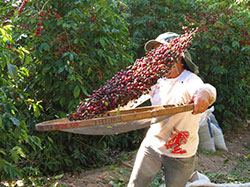
Get to know our Brazil Microlots!
These volcanic soil coffees are delicious and diverse... Read more...
Resources
Featured Region
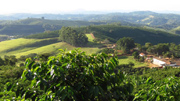
The Araku Valley of India
India's coffee tradition goes back 400 years or more, when a variety called Kent was first established in the Southern Hills. Arabicas predominated until the blight of 1870, when growers needed to hybridize to resistant varieties. The resultant strains had genes from Liberica and other unique, resistant species. Learn more and browse India's Araku Valley coffees here.
 Loading... Please wait...
Loading... Please wait...





